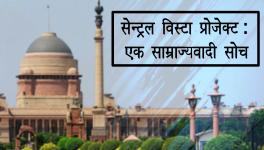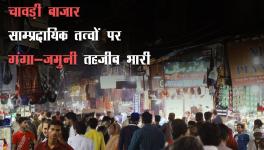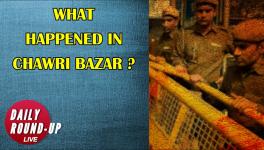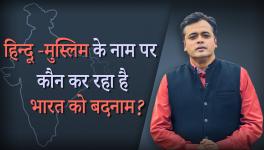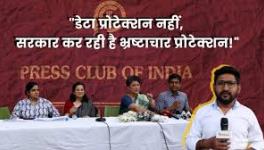‘Ghode Ko Jalebi Khilane Le Ja Riya Hoon’ Celebrates Dreams of Street People: Anamika Haksar
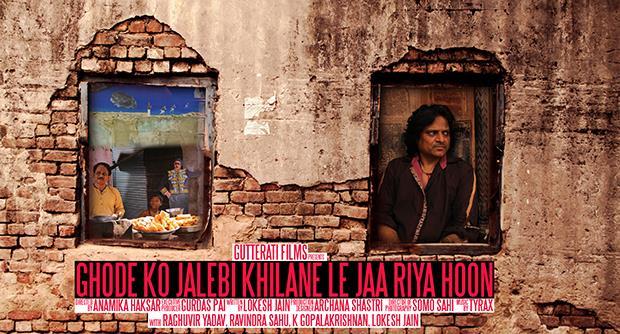
Mumbai: Veteran theatre director Anamika Haksar says through her directorial debut, the uniquely titled, Ghore Ko Jalebi Khilane Le Ja Riya Hoon, she wanted to go beyond the questions of "roti, daal, sabji" (food) and document the “hopes and dreams” of street people of Delhi.
The story is set in old Delhi and follows a pickpocket, a sweetshop vendor, a labourer-activist, and a conductor of ‘heritage walks’. It stars thespians Ravindra Sahu, Raghubir Yadav, Lokesh Jain and K Gopalan in lead roles.
Haksar said she wanted to move away from the cliched representation of the poor in cinema, which either pities them or depicts them as addicts.
"The idea was to make this film relatable. Old Bollywood would reflect poor people but today there is no reflection of poor people except they are drug or sex addicts. In this film, we are saying that they are people with dignity, hope and compassion and we are celebrating that," the director told PTI in an interview.
"We take it for granted that only we have dreams and opinions. We think they (poor street people) would say we want ‘roti, dal, sabji’. (But) people in the slums also have opinions, dreams,” she added.
From beggars to pickpockets, loaders, small-scale factory workers to street vendors, Haksar said the film is the result of seven years of documentation of the lives of people from Old Delhi.
"It is not that everyone is crying. There was a lot of laughter too when we met and interacted with people and heard their stories, which we can't reveal in detail.
"It is interesting that you can laugh and joke within the condition of deep drudgery. There is meaning to many things like how people are struggling but also surviving with dignity,” the National School of Drama alumna said.
Asked whether there was any particular reason for her to set the film in Old Delhi, Haksar said being born in the city, holding acupressure camps at Hamdard Dawakhana for the underprivileged and her connection with the Delhi theatre scene gave her a good insight into the “multi-layered world of Old Delhi”, a city that she believes has many histories living together within its walls.
The title of the film too has a Delhi connection.
Haksar recalled an incident shared by her aunt that stayed with her. Her aunt wished to travel by a tonga (horse cart) in Old Delhi, but the tonga wallah refused to ply her, saying ‘Ghode ko jalebi khilane le ja riya hun abhi toh mere paas waqt nahin hai’. (I am taking the horse to eat jalebis so I don’t have time).
“I was 16 or 17 when I heard this story from my aunt. When we thought of this film, this thing just struck me and we felt it is an idiomatic expression of old Delhi and one can interpret it in many ways,” she said, adding that she retained the flavour of the city by shooting in locations like the spice market, Naya Bazar, old akhada (wrestling spot), and slum areas.
The filmmaker has also incorporated elements of animation and folk art in the film’s narrative to depict the dreams and nightmares of the characters.
The idea, she said, was to use animation realistically without giving it a 'Disney-type' feel.
Ghode Ko Jalebi Khilane Le Ja Riya Hoon has had a successful run at festivals, including the Sundance Film Festival, Jio MAMI Mumbai Film Festival, and International Film Festival of Kerala, but financing the film was a huge challenge for Haksar.
“We went to many people and no one gave us money because they found the script a bit weird. So, the finance came from my friends, relatives, bank loans and the support of Platoon One Films. We had no support. We reached big festivals on our own, got selected and when it went to Sundance, it led to a lot of buzz,” she added.
Haksar, whose father PN Haksar was a policy advisor to former prime minister Indira Gandhi and mother Urmila Sapru, a teacher, said she and her sister were raised on the belief that they had a commitment and responsibility to the country and its people, something that reflects in her film.
"We had a big house but there was no emphasis on material things. This film is rather a culmination of what I was taught at home."
Produced by Gutterati Productions and distributed by Platoon One Films, Ghode Ko Jalebi Khilane Le Ja Riya Hoon released in theatres on Friday.
Get the latest reports & analysis with people's perspective on Protests, movements & deep analytical videos, discussions of the current affairs in your Telegram app. Subscribe to NewsClick's Telegram channel & get Real-Time updates on stories, as they get published on our website.









